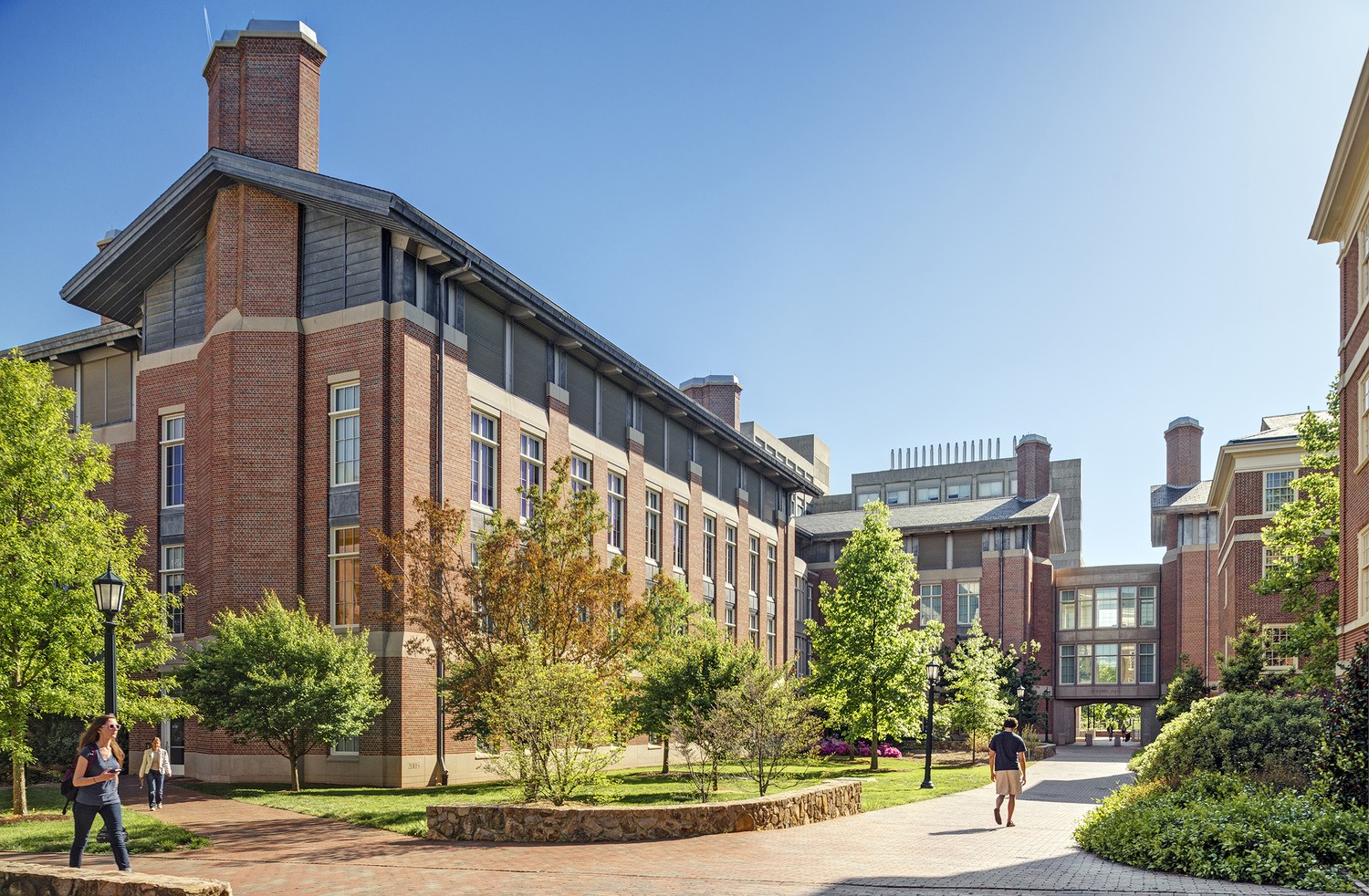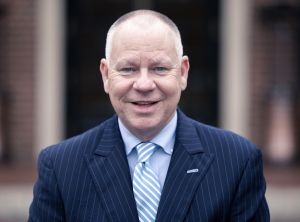Lowry Caudill: A Legacy Defined by a Belief in Carolina Chemistry’s Power to Change Lives

Lowry Caudill was a pivotal figure in the successful campaign to build UNC’s Physical Sciences Complex, a state-of-the-art research facility that includes a building that bears his name.
June 27, 2025 I By Dave DeFusco
Walk through UNC’s modern chemistry complex and you’ll see Lowry Caudill’s influence everywhere—on the facilities, the fundraising campaigns, the student experiences and, perhaps most enduringly, the values that guide the department’s mission.
A 1979 graduate with a bachelor’s degree in chemistry, Caudill has returned to the university again and again, not just in spirit but in substance: as Chair of the Board of Trustees, Adjunct Professor of Chemistry, Chair of the Chancellor’s Innovation Circle, and one of the most influential champions of Carolina’s scientific infrastructure and entrepreneurial vision.
Over a lifetime that has bridged science, business, education and philanthropy, Caudill has built a legacy defined by his belief in chemistry’s power to change lives, and his relentless work to ensure Carolina remains at the forefront of that mission.

Caudill’s path began in the classrooms and labs of UNC, where mentors inspired his love for science and encouraged him to pursue graduate study at Indiana University. There, under the guidance of faculty who traced their own academic lineage to Carolina—his advisor Mark Wightman earned his Ph.D. under UNC legend Royce Murray—Caudill sharpened the analytical skills that would define his early career.
After earning his Ph.D., Caudill entered the pharmaceutical industry, drawn by the potential to apply science to real-world human needs. “In the life sciences,” he said, “you’re developing drugs that can eradicate or manage diseases—helping people you’ll never meet, but whose lives are improved by the work you do.”
That work soon evolved into something more ambitious. In 1991, alongside Alfred Childers, Caudill co-founded Magellan Laboratories, a contract pharmaceutical development company built around a novel idea: that scientists deserved an environment where they could thrive. By the time they sold the company, it employed hundreds—many with advanced degrees—and had contributed to numerous life-saving drugs now found in pharmacies across the country.
“I still smile when I walk into a drugstore,” said Caudill. “There are drugs on those shelves we helped develop. Even if our piece was small, it meant something.”
When asked what today’s chemistry Ph.D. students and postdocs should focus on, Caudill’s answer is clear: “Learn your science. Get really good at what you do. Become an expert.”
But he also urges students not to stop there. In an age when AI and data science are transforming every industry, including pharmaceuticals, Caudill believes that chemists must be alert to broader trends and opportunities. He advises students to “pay attention,” and to seek out training in entrepreneurship, communication and business management, even if their ultimate path stays rooted in research.
“The reality is,” he said, “many professors already are entrepreneurs. They run labs, write grant proposals, manage teams and produce results. We just needed to reframe that mindset.”
At UNC, he helped do exactly that by co-creating and teaching courses in the university’s Entrepreneurship Minor, a program he now supports and funds. He also urges students to connect with industry while still in academia through the alumni network, departmental initiatives or simply by reaching out.
“You’d be surprised how many people are willing to talk to students. They remember what it was like to be starting out.”
Caudill’s deep commitment to the UNC Department of Chemistry has taken many forms—from mentoring faculty and students to helping raise millions of dollars in private and public support for research facilities. He was a pivotal figure in the successful campaign to build UNC’s Physical Sciences Complex, a state-of-the-art research facility, including a building that bears his name, made possible through a $3 billion statewide bond referendum, university funds and private philanthropy. The Physical Science Complex received the largest funding—$90 million—from the bond referendum. He and Holden Thorp, former chancellor of UNC-Chapel Hill, raised upwards of $25 million.
“You hear that people don’t give to bricks and mortar,” said Caudill. “But we helped people understand that if you want world-class research, you need top professors, students, funding—and facilities. That made it a compelling case.”
He’s proud of what’s been accomplished: “We now have buildings that rival any in the country. There’s no reason why UNC Chemistry can’t continue to be the top department in the nation.”
Looking ahead, Caudill sees opportunities for growth in emerging research areas such as artificial intelligence, clean energy and translational science. “There’s so much happening in battery chemistry, solar energy and drug development,” he said. “When I started out, no one wanted to work on batteries. Now it’s one of the most exciting places to be, and chemistry is at the center of all of it.”
In an era when public skepticism toward science is growing, Caudill believes that institutions like UNC play an essential role in reinforcing the value and integrity of research.
“Chemistry is foundational to so much—medicine, materials, energy, the environment. We have to do a better job communicating that, especially to people outside the scientific community.”
He sees this as a shared responsibility: not just for faculty and administrators, but also for students, alumni and supporters who understand science’s real-world impact. Philanthropy, he said, is one way of demonstrating that belief tangibly—by investing in the tools and talent that make discovery possible.
When reflecting on his greatest accomplishments, Caudill doesn’t dwell on awards, though they’re many—from UNC’s Distinguished Alumnus Award to national entrepreneurial honors. Instead, he focuses on the impact of innovation.
“I’m proud of helping create a company where scientists could do meaningful work. I’m proud of contributing to medicines that help people. And I’m proud of helping Carolina grow.”
That growth continues, thanks in no small part to Caudill’s vision, energy and belief in what chemistry—and Carolina—can do. For the students walking today through the classrooms and labs that bear his imprint, his message is both a challenge and encouragement.
“Pay attention. Learn deeply. Connect widely. And never forget that science, at its best, serves the public good.”

